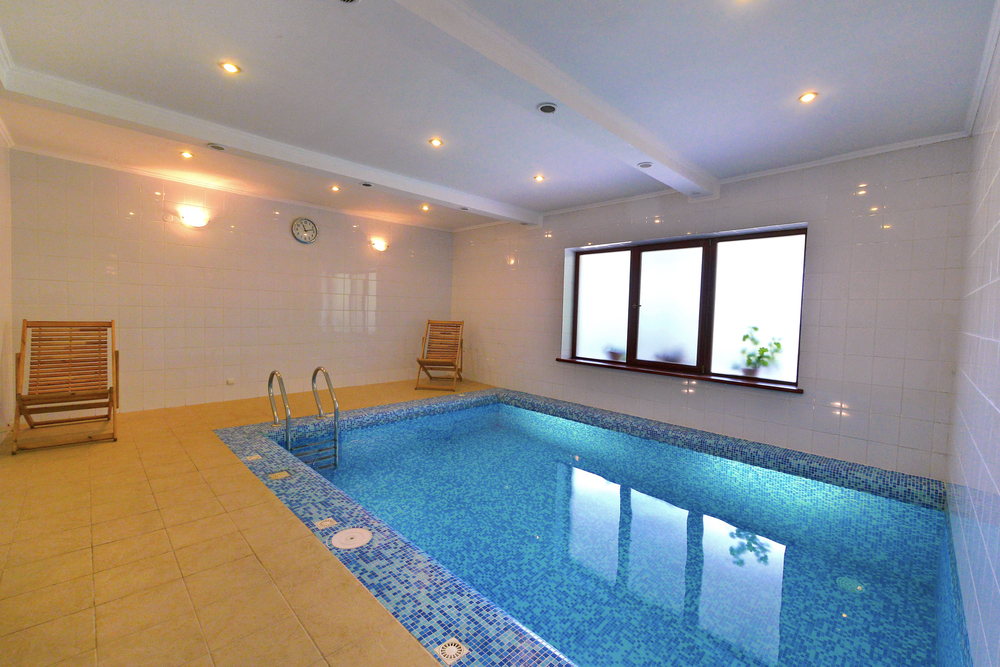Having an indoor pool, especially in an area of the country where the swim season is limited, means you can swim year-round. Having a home with an available room or a plot of land that is large enough to build an addition to house your indoor pool is one way to become an indoor pool owner. The pool contractors from Advanced Pool Care explain there are 5 indoor swimming pool issues to consider.
They can be overcome, but they do need to be considered during the construction project. A major inherent issue with an indoor pool is moisture, humidity and condensation which can lead to mold, mildew and wood rot. If the room is not currently and properly ventilated or if you don’t use high-efficiency dehumidifier moisture will happen and cause damage to your home.
Heat loss — from your pool’s water — leads to humidity. Most heat loss from a swimming pool comes through surface evaporation. Using a pool cover, yes even for an indoor pool, slows the rate of evaporation and reduces energy consumption by up to 50%.
5 Indoor Swimming Pool Issues To Consider
Here are some tips to consider and talk with your pool contractor about if you’d like to have an indoor swimming pool.
- Invest in a high-quality, high-efficiency dehumidifier. Look for one that is designed for indoor swimming pool rooms.
- Invest in a dehumidifier that features humidity control adjustment options and experiment with the settings until you achieve the proper humidity levels in the room. You don’t want the levels too high or too low.
- Fun fans and open windows to help with air movement.
- Keep track of the pool water temperatures. Each degree of heat adds up to 10% to your electricity bill. The warmer the water, the higher the chance of humidity. Also, if you have a pool indoors, you may not want to keep the water temperature as high as you would if the pool was outdoors.
- Make sure your pool contractor recommends a pool pump that is correctly sized for your unique pool. Bigger isn’t better and will just cost you more money to run and won’t increase the efficiency.
If you are determined to have an indoor pool — and if you can we say, why not? — give us a call and let’s talk about how that will look for your home and your lifestyle.


